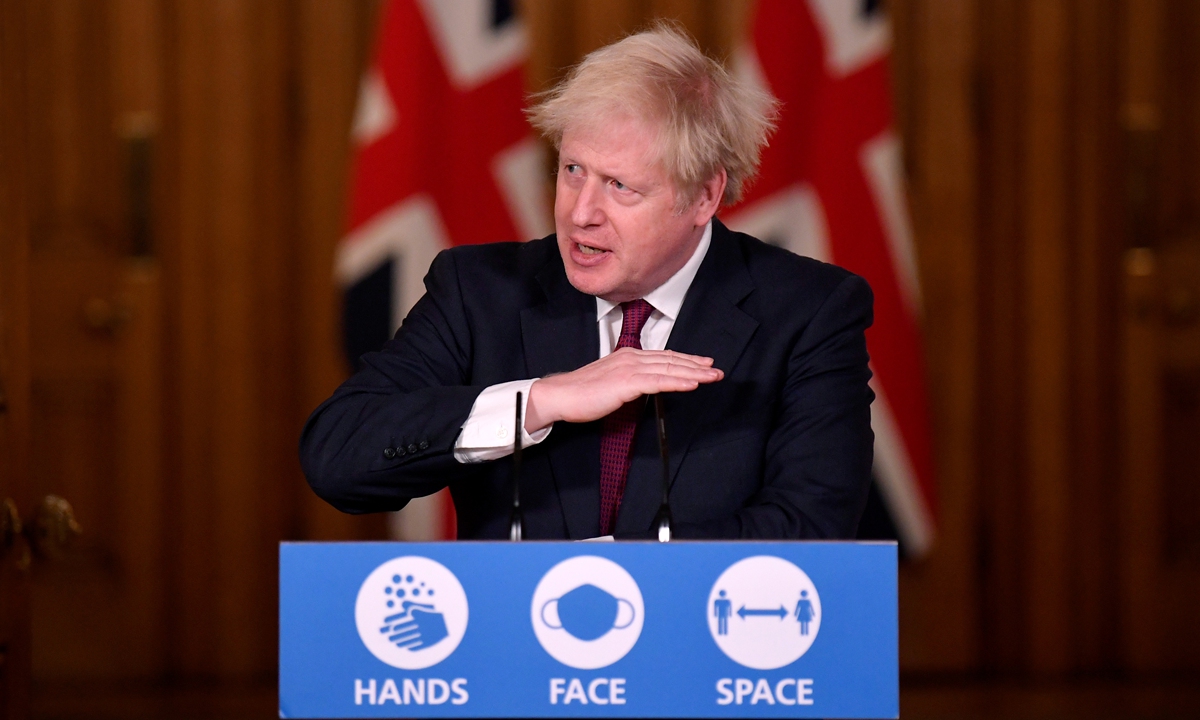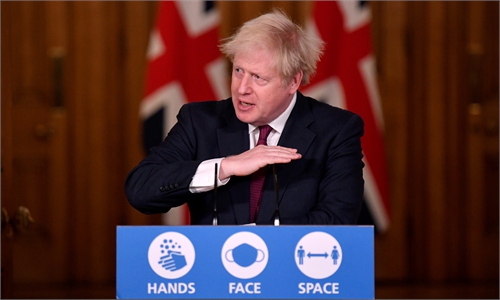
British Prime Minister Boris Johnson has approved placing more parts of the country into the highest level of restrictions, known as tier 4, on December 19. Photo: VCG
Prime Minister Boris Johnson was expected on Thursday to praise the UK's joint response to the coronavirus pandemic during a trip to Scotland, where support for independence has hit record highs.He was expected to be walking straight into a row with First Minister Nicola Sturgeon, leader of the Scottish National Party, who questioned whether Johnson's trip contravenes his own COVID-19 rules on making only essential journeys.
Sturgeon said she was "not ecstatic" about the visit, adding that leaders should stick to the same rules as the general public.
"People like me and Boris Johnson have to be in work for reasons people understand, but we don't have to travel across the UK. We have a duty to lead by example," she said.
Johnson's Downing Street office responded that it was "a fundamental role of the PM to be the physical representative of the UK government" and that it was "right that he's visible and accessible for communities, businesses and the public."
The prime minister was expected to highlight the role played by central government in providing tests, setting up vaccine centers and subsidizing those who are unable to go to work.
"The great benefits of cooperation across the whole of the UK have never been clearer than since the beginning of this pandemic," he was expected to say, according to his office.
"We have a vaccine program developed in labs in Oxford being administered across the UK by our Armed Forces, who are helping to establish 80 new vaccine centers across Scotland."
The visit comes amid a slew of polls showing Scotland would vote to leave the union in any re-run of the 2014 referendum, in which it opted to stay.
Nationalists said Britain's vote to leave the European Union in 2016, opposed by most of Scotland, meant another referendum should be held.
The vote to leave the EU had little direct effect on support for independence, with polls still showing a majority wanted to stay in the UK.
However, the coronavirus pandemic has seen a significant shift toward independence.
Each devolved government has had a large say in dictating their response, often pitting them against London and providing a glimpse into how independence could operate.

